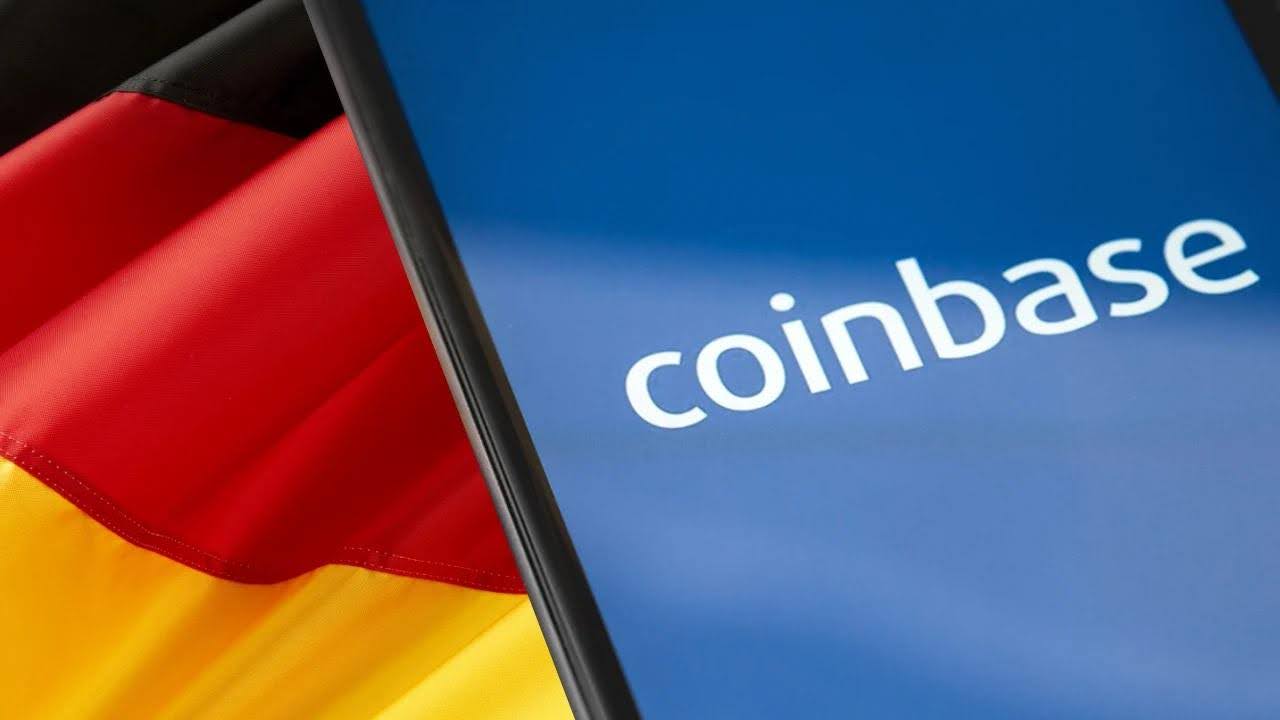8 Hot Tokens Just Dropped on Coinbase — But Only One Country Can Touch Them

Key Takeaways:
- Coinbase adds 8 high-interest tokens including PENDLE, PENGU, and RPL — exclusive to Germany.
- The move underscores Germany’s emerging status as Europe’s crypto leader, with clear licensing and infrastructure.
- Germany’s decade-long regulatory evolution makes it a prime launchpad for localized crypto offerings.
Coinbase has surprised global crypto users by rolling out access to eight trending tokens — but only for residents of Germany. The update signals more than just a token listing; it underscores a deeper shift in how exchanges are navigating compliance through regional launches, with Germany standing out as the new regulatory stronghold.

Read More: Coinbase Breaks Barriers: First-Ever Crypto Company Added to the S&P 500 Index
Coinbase’s German-Only Update: 8 New Tokens Unlocked
In a post made on May 26 via X (formerly Twitter), Coinbase Assets revealed a list of eight new digital assets now available on its platform — but solely for users in Germany.
These tokens include:
- Rocket Pool (RPL)
- Reserve Rights (RSR)
- Pudgy Penguins (PENGU)
- Renzo (REZ)
- Aethir (ATH)
- Syrup (SYRUP)
- Pendle (PENDLE)
- Layer3 (L3)
Rocket Pool (RPL), Reserve Rights (RSR), Pudgy Penguins (PENGU), Renzo (REZ), Aethir (ATH), Syrup (SYRUP), Pendle (PENDLE), and Layer3 (L3) are now available to Germany residents.
— Coinbase Assets
(@CoinbaseAssets) May 26, 2025
All eight are accessible through Coinbase’s mobile and desktop apps, where German users can buy, sell, receive, and store the assets. The platform has confirmed that some users may need to refresh or update their app to see the new listings.
Why Germany? Regulatory Clarity and Institutional Trust
Germany has been working on rules for digital assets since 2013, unlike most other countries that are still trying to figure out how to do it. BaFin (Federal Financial Supervisory regulator), the country’s main financial regulator, was one of the first in the EU to call cryptocurrencies “units of account.” This legal term put them under financial control.

Germany was the first country in the EU to give fully controlled custody licenses to cryptocurrency companies in 2020. This meant that Coinbase and other similar companies could properly work in Germany through Coinbase Germany GmbH, a business that has a license from the BaFin.
This level of compliance not only makes Coinbase’s operations in Germany legal, but it also lets other regulated companies, like banks, investment funds, and even pension plans, get involved.
“Germany’s consistent and structured approach to crypto regulation makes it ideal for serious players. Coinbase’s move is both strategic and long overdue,” said Lukas Kessler, a fintech policy expert in Berlin.
A Brief Timeline: Germany’s Journey with Crypto
From Gray Area to Europe’s Leading Regulatory Blueprint
- 2011–2013: Bitcoin enters German media and political discussion. In 2013, BaFin officially classifies Bitcoin as a “unit of account”, paving the way for regulatory oversight.
- 2018: Crypto startups face legal uncertainty amid rising ICO activity. Germany joins France in calling for an EU-wide framework.
- 2020: BaFin introduces a licensing regime for crypto custody services. By law, any company storing digital assets for others must be registered and comply with AML (anti-money laundering) rules.
- 2021: Germany passes the Fund Location Act, allowing special funds (Spezialfonds) to invest up to 20% of their portfolios in crypto, opening the gates to institutional capital.
- 2023: Digital finance becomes a central agenda item for German economic strategy. Several banks begin exploring tokenized securities, and crypto ETFs begin gaining traction.
Through this progression, Germany has established itself not just as a regulatory safe zone, but a growing digital asset hub with one of the most structured legal frameworks in Europe.
Coinbase’s Token Selection Reflects Strategic Thinking
Beyond regulatory ease, the specific tokens chosen for the German market seem carefully curated for utility, growth potential, and legal acceptability:
- Rocket Pool (RPL) is a decentralized Ethereum staking network, aligning well with Germany’s focus on DeFi infrastructure.
- Pendle (PENDLE) offers yield-trading products and has been among the top-performing altcoins of Q2 2025.
- Pudgy Penguins (PENGU) taps into NFT culture, which has seen a rebirth in Germany’s art and Web3 spaces following partnerships with retail giants.
- Layer3 (L3) and Syrup (SYRUP) are emerging platforms that promote user rewards and gamified engagement — both growing themes in the European retail market.
The inclusion of lesser-known names like Renzo (REZ) and Aethir (ATH) suggests Coinbase is using Germany as a testing ground for mid-cap assets with growth upside, under close regulatory observation.
Read More: Over 10,000 Users Accuse Coinbase of Secretly Harvesting Biometric Data in Explosive Lawsuit
Europe’s Crypto Future May Be Built in Berlin
While the U.S. grapples with lawsuits, Congressional gridlock, and turf wars between the SEC and CFTC, Germany — and by extension the EU — is pushing forward with MiCA (Markets in Crypto-Assets Regulation), set to take effect across member states.
Germany is uniquely positioned to lead this rollout, with existing structures that mirror the upcoming MiCA guidelines. This makes it a preferred entry point for global firms like Coinbase, Binance, and even local banking institutions starting to offer crypto products under full compliance.
Moreover, Berlin’s growing tech scene and developer community are aligning with regulatory clarity to make it a potential Web3 capital for Europe, with increasing attention from VCs and cross-border projects looking for a stable base.
The post 8 Hot Tokens Just Dropped on Coinbase — But Only One Country Can Touch Them appeared first on CryptoNinjas.
